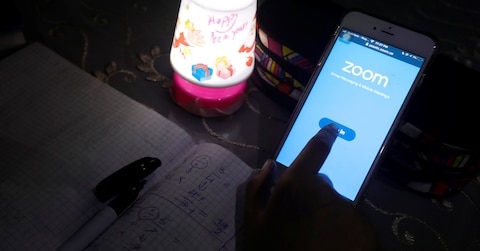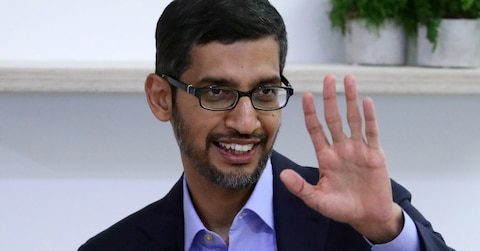Analysis | The Technology 202: MIT researchers unveil effort to trace spread of the coronavirus – The Washington Post
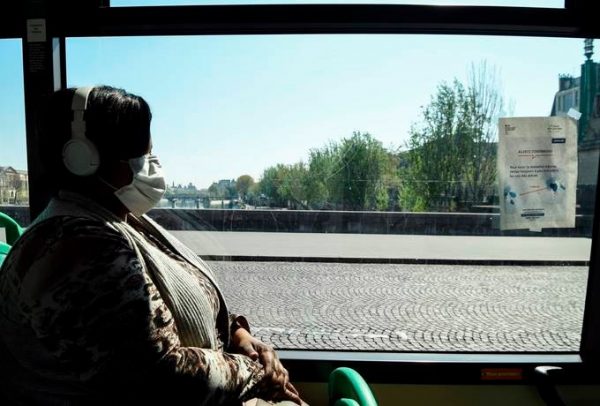
A woman wearing a protective face mask sits in a bus next to a poster on the window displaying the protective measures against the covid-19 (Photo by ALAIN JOCARD / AFP) (Photo by ALAIN JOCARD/AFP via Getty Images)
with Tonya Riley
Ctrl + N
Researchers want to use the same technology that powers Find My iPhone to alert you if you’ve come into contact with someone who has tested positive for the novel coronavirus.
The Massachusetts Institute of Technology-led effort would allow infected people to volunteer to upload a log of their recent Bluetooth signals to a database. Other people would then be able to scan that database and see if they crossed paths with an infected person. They would also receive a notification alerting them they were exposed.
“Our effort is designed to show that there is a privacy preserving way of doing this kind of automated contact tracing,” Daniel Weitzner, a principal research scientist in the MIT Computer Science and Artificial Intelligence Laboratory and co-principal investigator of this effort, told me.
The technology would not reveal anything about the infected person’s identity, only whether two Bluetooth devices have been in close proximity based on anonymous signals.
Weitzner says researchers are trying to accomplish something that’s never been done before — and they are still verifying this approach is even technically possible. Other Asian countries somewhat successful in limiting the virus’s spread, like South Korea, have employed aggressive electronic contract tracing efforts relying on GPS data likely to raise privacy alarms in the United States.
But Weitzner says the MIT Bluetooth-based approach would be less invasive and more accurate.
The researchers currently have working prototypes running on less than 100 Android phones in a lab, and expect to have a more mature prototype in the next week. All of the code is going to be open source so that companies and developers can build apps that would ensure users can begin to use the technology. But it’s unclear how long it will take for the technology to broadly get into users’ hands — and they’ll need support from the tech industry and government officials to ensure that any application is effective.
“I have zero expectation that if you just put out an app just like that and say. ‘Here it is, it’s in the App Store,’ that we would get to the level of deployment that’s actually necessary to have a public health impact,” Weitzner said. “That’s going to have to happen as part of a state or regional or national public health strategy, and we think it’s pretty likely that it’s going to require active support from the iOS and Android platforms.”
MIT is pulling the curtain back on its effort during an escalating debate about how much data about Americans’ movements should be used in the effort to contain the novel coronavirus — and later help cities and states relax social distancing measures.
There’s deep tensions between addressing the public health crisis and preserving people’s privacy — and that conflict is increasingly in the spotlight in Washington. The Senate Commerce Committee today will host a “paper hearing” on the matter, with representatives from both industry and privacy advocates.
There have been several other highly publicized efforts to leverage smartphone data to help U.S. officials track the efficacy of social distancing measures. Facebook and Google have both launched initiatives, and mobile advertising companies have been sharing data with government officials to show which restaurants, parks and other public spaces are still seeing heavy traffic despite shelter-in-place or stay at home orders.
MIT researchers want to strike the right balance between privacy and safety. But their success hinges on cooperation from large tech companies, which hold they key to unlimited information from Bluetooth devices. Weitzner wants the government to urge large mobile phone makers like Apple and Google – which did not immediately respond to requests for comment – to waive some of the restrictions on developers’ access to Bluetooth technology to provide greater access to data.
“This is a matter of extreme public interest, and I think it’s reasonable to say that if we expect these companies to take extra steps that do have privacy implications that there should be a clear call from government to do that,” Weitzner said. “Because I’m not sure we’d really want necessarily this to happen without knowing that if the government’s taking some responsibility for this at the local, state or federal level.”
MIT researchers are trying to start with the least invasive approach possible.
“My view is that we absolutely should not be in and do it at all costs approach,” Weitzner said. “What we should be in is do the minimum necessary to be effective”
BITS, NIBBLES AND BYTES
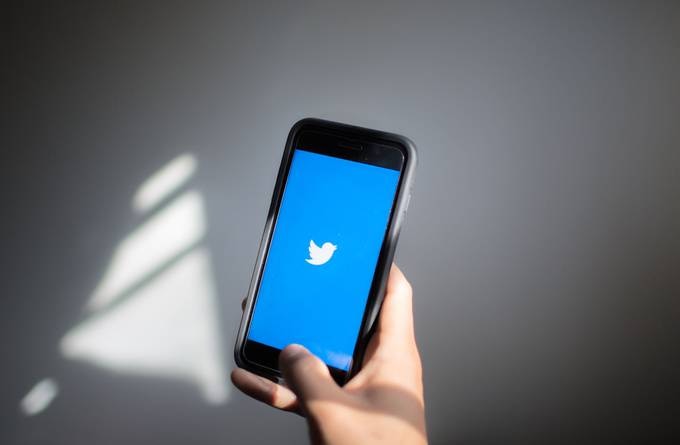
The Twitter Inc. logo is displayed on an Apple Inc. iPhone in this arranged photograph taken in the Brooklyn Borough of New York, U.S., on Monday, April 23, 2018. Twitter Inc. is scheduled to release earnings figure on April 25. Photographer: Alex FLynn/Bloomberg
BITS: Anti-Chinese sentiment is surging online as slurs and terms like “kungflu” conflate the coronavirus pandemic with ethnic and racial identity, my colleagues Craig Timberg and Allyson Chiu report. Researchers tracking the online racism are concerned that it is contributing to a recent string of real-world verbal attacks and violence.
“The words are like a virus,” said Joel Finkelstein, director of the Network Contagion Research Institute, a nonprofit group that tracks hate speech online. “That leads to actions that are visible.”
His group found that racist conspiracies alleging the coronavirus is a bioweapon designed by the Chinese have surged on 4Chan, an online forum whose content often migrates to mainstream social networks. The researchers also found calls for violence against Asians on Twitter and Instagram, including a post that called for shooting “every Asian we meet in Chinatown.” Instagram has since removed the post for running afoul of its policies.
The Finkelstein-led effort and a separate group of researchers saw peaks in racist slurs at the beginning of the pandemic and when President Trump used the term “Chinese Virus” on Twitter last month. The hashtag #ChineseVirus appeared 130,000 times the day after Trump used it in a tweet, my colleagues report.
“When it becomes normalized … it dehumanizes Chinese and Asians,” Russell Jeung, chair of San Francisco State University’s Asian American studies department told my colleagues. “It’s like equating them to a face mask and equating them to the disease, so it’s easy to scapegoat and attack them.”
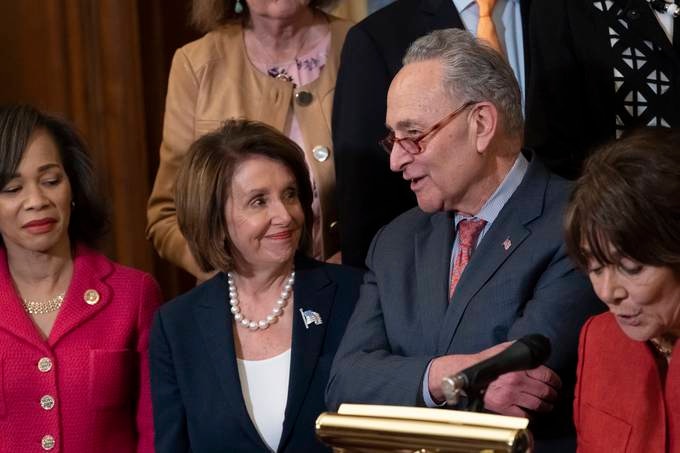
House Speaker Nancy Pelosi, D-Calif., and Senate Minority Leader Chuck Schumer, D-N.Y., flanked by Rep. Lisa Blunt Rochester, D-Del., left, and Rep. Anna Eshoo, D-Calif., right, attend a Democratic event ahead of a House floor vote on the Health Care and Prescription Drug Package, at the Capitol in Washington, Wednesday, May 15, 2019. (AP Photo/J. Scott Applewhite)
NIBBLES: Rep. Anna Eshoo (D-Calif.) is calling on congressional leadership to consider legislation to ensure venture capital-backed start-ups can access the federal government’s small business relief program. The congresswoman said the guidance the Treasury Department and Small Business Administration have issued is insufficient, and many companies are still confused about whether they’re eligible.
“I continue to hear from start-ups and lenders that the ambiguity surrounding this issue is standing in the way of SBA-approved lenders from issuing [Paycheck Protection Program] loans to startups,” she wrote to House and Senate leadership yesterday. “I ask you to explore a legislative solution to ensure that startups can access the funding Congress is making available to small businesses”
The SBA offered some additional guidance easrlier this week about the rules preventing many tech start-ups from applying. But the limited guidance has left start-ups scrambling to change their relationships with investors and banks still reluctant to extend loans, Emily Birnbaum and Biz Carson at Protocol report.
Eshoo, who cites broad support for a solution from fellow lawmakers and over 200 general counsels for tech companies, wants Congress to make the rules crystal clear before more start-ups have to shutdown.
“We cannot let this terrible pandemic lead to irreparable damage to our most innovative and vibrant businesses and their workers,” Eshoo wrote
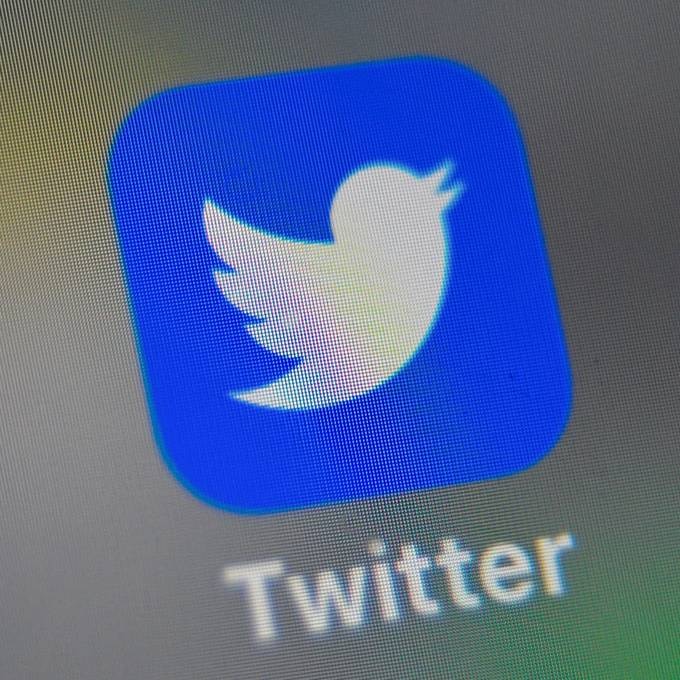
A picture shows the logo of the US social networking website Twitter (Photo by DENIS CHARLET / AFP) (Photo by DENIS CHARLET/AFP via Getty Images)
BYTES: Twitter removed a feature allowing all users to limit sharing some information like the ads with which they interact and the tracking identifier for their phones with advertisers, The Verge’s Jacob Kastrenakes writes. Now for many users, that information will be shared by default and cannot be turned off.
The company says the change will allow advertisers to track how effective their campaigns are on Twitter. If the company can show that people are actually watching and interacting with ads, it can continue operating as a free service to consumers, it says.
People can still prevent sharing of some information, such as their specific interests, with advertisers, and there’s still an option to disable web tracking. Twitter will not share users’ names, email addresses, phone numbers or user names.
Users in the European Union, the European Free Trade Association and the United Kingdom are exempt from the change. Those users, who are protected by more stringent data privacy laws, have to opt in if they want to let Twitter share more information about them.
PUBLIC CLOUD
— Technology news from the public sector:
U.S. senators question Amazon CEO about firing of warehouse protest leader
Five Democratic lawmakers on Wednesday wrote Amazon.com Inc to raise concern about its firing of a worker who protested warehouse operations during the coronavirus pandemic, according to a copy of the letter seen by Reuters.
Reuters
The report comes as election security experts remain on alert for efforts to manipulate the 2020 election from Russia and many other countries and nonstate actors.
NBC News
PRIVATE CLOUD
– Prominent tech companies plan on transitioning their summer internships fully or partially online as the coronavirus keeps offices closed, Ina Fried at Axios reports. Companies are making a sincere push to go digital, but people told Ina privately that remote internships are not likely to be as impactful as the traditional experience.
Further complicating the matter: Some of the companies are reporting their biggest intern classes to date.
Google, Twitter, Microsoft, Salesforce, IBM and Lyft will have fully virtual internships. Apple, Amazon and Uber are hoping to still have some interns work on-site. Facebook still hasn’t decided if it will go virtual or not, Ina reports.
“These are unprecedented times as you can imagine. We are considering all of our options for the summer internship program as we continue to put the health and safety of our employees and interns first,” Facebook told Axios in a statement.
— More technology news from the private sector:
Zoom Rushes to Improve Privacy for Consumers Flooding Its Service
The features that allowed companies to hop on videoconferences also made it easy for trolls to hijack meetings and harass students.
The New York Times
Google Has Banned Zoom Software From Employees’ Computers, Citing Security Vulnerabilities
Zoom has exploded in popularity during the coronavirus pandemic while also coming under fire over security issues.
BuzzFeed News
Six Amazon workers told CNBC they’ve received partial pay or no pay at all while they’re in quarantine due to the coronavirus.
CNBC
#TRENDING
— Tech news generating buzz around the Web:
Internet Culture
The meme requires a special kind of math.
Travis Andrews



